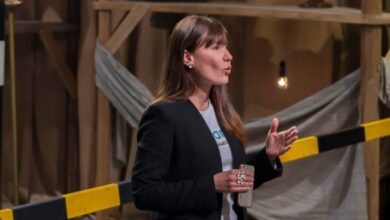Colombia: how do you try to regulate cocaine?
Iván Marulanda, senator and presidential candidate, proposes a law that seeks to regulate the Coca leaf and its derivatives.

In Colombia, a law is proposed that seeks to regulate the coca leaf and its derivatives. / Photo: Reuters
Latin American Post | Santiago Gómez Hernández
Listen to this article
Leer en español: Colombia: ¿cómo se intenta regular la cocaína?
Colombia, according to estimates by the White House, has 212,000 hectares of coca leaf and produces 951 tons of cocaine per year. This makes it the main (by far) exporter of this narcotic in the world (90% of the market, approximately).
Despite the very costly Coca eradication programs and the bloody war on drugs, declared since the Richard Nixon administration, production reaches record levels and no close solution is in sight.
This semester, the senator for the Green Party, proposed a bill that seeks to give another approach to this fight against drugs to regulate the cultivation of the Coca leaf and its derivatives.
@HarryGonzalez habla sobre la sustitución de cultivos, erradicación forzada, la fumigación con glifosato
¡El consumo de cocaína en Estados Unidos! Ese negocio es el motor de la deforestación y criminalidad donde Colombia pone muertos y corrupción.El enfoque del próx determinará pic.twitter.com/Ni0Wb1r0Sp
— Angélica Lozano Correa (@AngelicaLozanoC) May 2, 2018
According to Marulanda, the State must buy all the coca leaf production that exists at the moment. "The idea is to take the business away from drug traffickers. The drug traffickers are producing 90% of the cocaine in the world, they produce it in Colombia. It is produced by Mexican and Colombian drug cartels in Colombian territory. So we need to take that business away from them." said the congressman.
Los resultados de las elecciones en EEUU abrieron aún más el escenario para la regulación de las drogas. Oregon ya dio el paso, todas las drogas fueron despenalizadas. Bienvenido Wade Davis a construir juntos este mismo camino en Colombia para regular la hoja de coca.
— Iván Marulanda (@ivanmarulanda) December 1, 2020
Apparently the math makes it workable. The politician estimates that "the eradication plans in Colombia today are worth 4 billion pesos a year [USD 1,178,000,000]. Unsuccessful, they are also a battlefield. Buying the Coca leaf of all those 200 thousand hectares costs 2.6 trillion pesos [USD 765,000,000]. Much less than the cost of eradication plans. "
In addition to the possible tax benefits, the presidential candidate highlights another aspect: "it would integrate into the democratic institutionality 250 thousand families that live from the cultivation of the Coca Leaf, who are persecuted because it is an illegal crop. So these families today do not have protection from the State, but on the contrary, they are harassed by it and persecuted (…) if (the project) is approved, on the contrary, it will protect them and help with investments in electrification, public health, in Education, in tertiary routes, in technical assistance, in development credits so that they can establish themselves as normal families in their productive activities in the Field. "
In dialogue with Latin American Post, Marulanda explains that after buying the entire Coca leaf, it will have 3 possible purposes:
1. Raw material for ancestral industries that use the coca leaf for non-psychoactive products.
2. Cocaine production that will go to internal consumption. Its sale will be regulated by the state.
3. Manufacture of fertilizers and composting.
Also read: Iván Marulanda: Colombia must restore relations with Maduro
Marulanda believes that if the State is responsible for supplying cocaine to consumers (2% of the population between 12 and 65 years old, according to the National Administrative Department of Statistics), they would have fewer health risks and would combat the illegal market. The "micro-trafficking networks, which are taking cocaine to schools, colleges, universities, sports fields, parks, and bars and discos. Besides, it is terrible cocaine, of bad quality, because it is mixed with another type of chemicals harmful to health. "
Consumer education
Another key aspect highlighted by the senator is that with the regulation of the sale of Cocaine, consumers will be exposed to less risk of dying from an overdose. Each person who wants to obtain this substance legally, must first go to the doctor for a prescription.
The consumer must go to the doctor for a prescription, just as they do with any other drug. This way they will have control and record of the drugs consumed, the amount, and the way that they do it. Additionally, responsible consumption will be encouraged with educational campaigns for consumers.
"From the regulation scenario, it is already possible to do educational promotion to teach people the consequences of cocaine, to prevent people from falling into dependence on that consumption. A civilized treatment of consumption can now be done. Get it out of hiding, "says Marulanda.
New hectares
In the project proposed by the congressman, the Government will only buy the Coca leaf from the already existing hectares. Any other new crop will be hunted down and eradicated.
Investigación @parescolombia y texto @RevistaSemana
1. Del 100% de tráfico de drogas, el 85% es marítimo y 15 % aéreo.
2. Del tráfico marítimo, 70% va por el pacífico y 30% por el caribe
3. Colombia llegó en 2019 a 212 mil hectáreas de coca… crecio
https://t.co/bgl7GVNta2 pic.twitter.com/yBw6USsf5R— Ariel Ávila (@ArielAnaliza) April 7, 2020
"You cannot eradicate 200 thousand hectares of Coca, but if there are 10 here and 100 there … they can be eradicated. Colombia has the repressive capacity to eradicate a small number of hectares," he explained.





